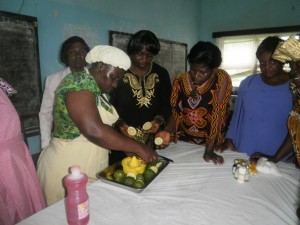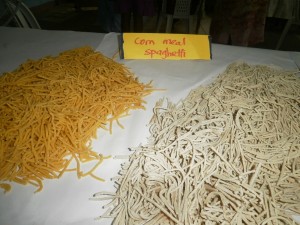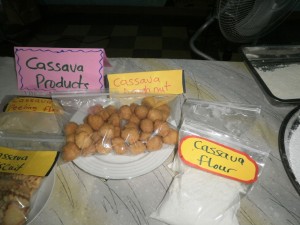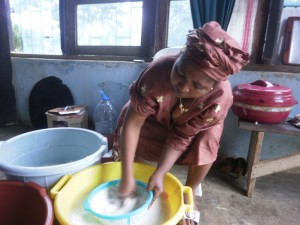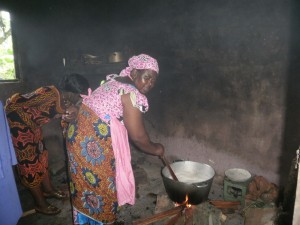Walter Wilson Nana
Buea, Cameroon
There are endless opportunities for the Cameroonian woman to emerge, create wealth, build her capacity and strengthen the development chain. This is the background of a learning and exchange experience forum that took place in Kumba, Meme Division, Southwest Region, August 27 – 30 2013.
An initiative from the Department for the Economic Empowerment of Women and the Family in the Ministry of Women Empowerment and the Family, was aimed at bringing out the creativity in women and tracing the path for empowerment.
According to Dr. Margaret Niger Thomas, Director of Economic Empowerment and the Family in the aforementioned ministry there is need for Cameroonian women to learn new and modern techniques in the production, transformation and conservation of agro-pastoral products in order to avoid post harvest losses.
The more than 50 rural women from the Northwest and Southwest Regions respectively were told to increase productivity, source for funding and marketing opportunities and curb post harvest losses of their products.
Niger Thomas said the empowerment of the Cameroonian woman, which is at the centre of their ministry, must be achieved. “It is the responsibility of the government of Cameroon to contribute in the capacity building of the Cameroonian woman. The Kumba gathering is focussed on the rural woman. They are not left out. Our ministry has an agenda for all and progressively, we take on various women groupings. Cameroonians cannot have food on their tables without the rural woman. Hence, we have to, in a collegiate manner get them empowered,” she explained.
The Director of Economic Empowerment and the Family, said that, women must be able to benefit from what they produce, increase their capital and be able to transform their products from one level to another. “They cannot remain on the same level with the fast evolving world and technology. They have to move from the level of subsistence to entrepreneurs and this entail learning new techniques of processing from Cassava to Garri and from Garri to something else. At the workshop, our facilitators are telling the women to use Cassava and make starch, which can be sold in the market. They can produce flour and use them for cakes, doughnuts and spaghetti. It has been an exciting experience,” she noted.
On how the products of the women can be found in Abuja, Johannesburg, London, Niger Thomas entreated them to be assertive. “We have also taught them group dynamics and how to group themselves in a cooperative. Individually, it will be difficult for most of the women, especially in accessing loans from the big banks but we are advising them to get together as common initiative groups.
That way, they will access bigger markets, put their resources together, increase productivity, transform them, respect the norms, packaging and compete in the bigger markets,” she added.
The administrator noted that it is their duty to accompany the Cameroonian woman to a positive change of mentality and international exposure in all their endeavours. “We are telling the rural women that they can go beyond subsistence and what they have been doing if they are organised,” she said.
Southwest Regional Delegate of Women Empowerment and the Family, Juditha Moffah said it is time to make an impact on the lives of the rural woman in Cameroon, give them tips to create their own wealth, show their dynamism and avoid being idle. “The rural woman must be in the talk of second generation agriculture and post production in Cameroon,” she mentioned.
Resource person at the forum, Augusta Epuli Anjoh told the women on how to conserve, market their products and generate profits in what they do. “The women must know they are in business and knowledge on financial management is critical,” she said.
The Development and Gender Consultant indicated it is imperative for the women to do market surveys before they venture into an activity. “They must ask themselves questions on how to distinguish their products and themselves in the ever competing markets and what the population need. Rural women in other parts of Africa are moving fast. The Cameroonian must catch up,” she noted.
Christopher Ekongwe Kang, a Post Harvest Technologist from the Ministry of Agriculture and Rural Development explained to the women that their success begins with understanding the principles of vegetable production. These, he enumerated include; freezing, drying and storage. “They must learn how to produce for others, access technology and to sell beyond their smaller communities.”
Mariana Sama Mojoko from Idenau and Grace Ndobou Bih from Bali conceded that the Kumba forum has given them ideas on how to add value to their products, be able to consume home made products and make more money for themselves, their families and the nation in general.


